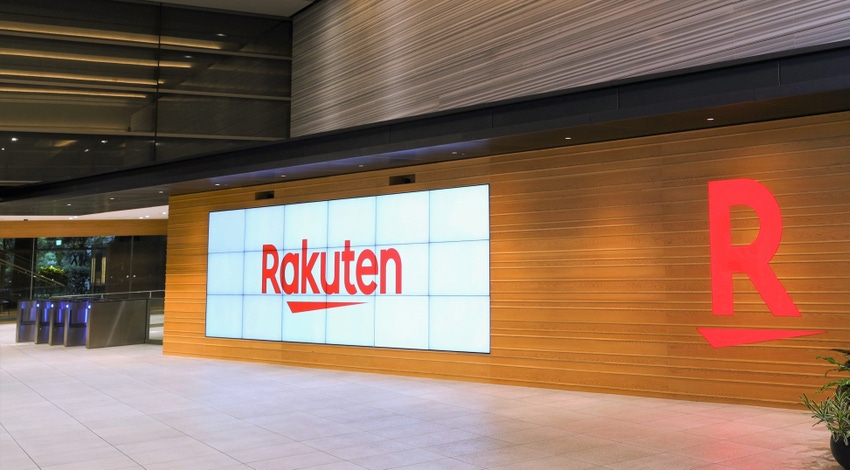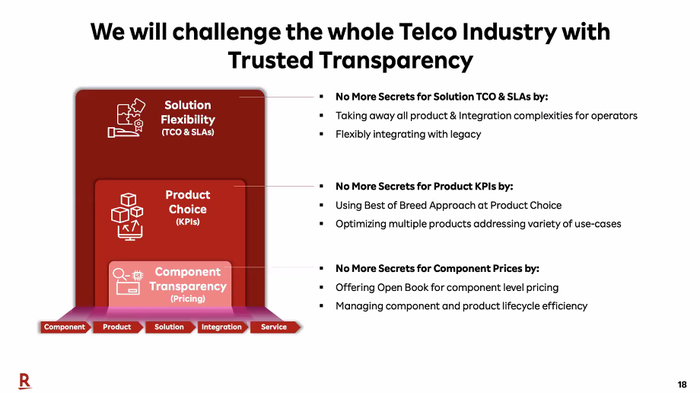Rakuten says it will have “No More Secrets”
Rakuten’s CTO Tareq Amin told analysts and media that the company will soon disclose all prices it pays its suppliers, in a new drive for commoditisation of telecoms hardware and software.
June 15, 2021

Rakuten’s CTO Tareq Amin told analysts and media that the company will soon disclose all prices it pays its suppliers, in a new drive for commoditisation of telecoms hardware and software.
In addition to the run-of-the-mill update on its network coverage (88.6% of population covered with 22.5K sites, which is claimed to have “exceeded plan”, with accelerated rollout planned for later this year) and subscriber growth (4.1 million “applications” by May), Amin announced that company will launch a new programme, under the overarching banner of “No More Secrets”.
At the very basic level the company plans to disclose the component level pricing it pays suppliers, including software suppliers. It also plans to share the KPIs it uses to select products, as well as the solution TCO (total cost of ownership) and SLAs (service level agreements) it enters with vendors. See the image below for details.
Next step, with the product prices transparent and functions and performance certified, Rakuten plans to launch a global online marketplace for operators to source off the shelf equipment. Amin said the company can leverage Rakuten Group’s global network to handle the logistics.
Amin was explicit that the programme’s objective is to drive further commoditisation of telecoms supplies. He used the example of his relationship with Intel’s semiconductors used in the radio networks. With pricing of standard microchips made transparent, Amin said, customers like Rakuten can avoid R&D spending in hardware, for example by getting involved in customised silicon development.
One problem with the pricing transparency initiative is the discrepancy between BOM (bill of materials) cost and product cost, that is, the sum of component costs does not equal the cost of the final product, which also includes a variety of costs from R&D and assembly to logistics and overhead. When asked specifically how Rakuten will reach the accurate knowledge of product level cost of the telecoms equipment, Amin did not provide a straight answer.
The planned price disclosure may be of help to those operators embracing OpenRAN solutions, but it will not have any bearings on the increasing for the leading companies, in particular the cloud giants (Amazon, Microsoft, Google, Alibaba) investing heavily in developing their own customised chips for optimised performance.
Another potential problem is confidentiality. Most business contracts explicitly forbid the contracting parties from disclosing the content to third parties. The “No More Secret” programmes seem to be challenging the dominant legal systems governing the world’s commercial transactions. For example, Amin said he would disclose how much Rakuten pays Red Hat for the latter’s software. Amin prided himself that many vendors were reluctant to work with him because of his deep knowledge of their price structures. The industry will be interested in observing the new programme’s ramification on Rakuten’s supplier landscape.
On today’s call Amin also said the company has taken measures to mitigate the risks coming out of the global semiconductor shortage. When asked to elaborate, he said Rakuten had made early orders before the shortage hit hard. But he also conceded that the stockpile would not address mid to longer term (18-24 months) challenges. It will become more testing for Rakuten if it plans to press ahead with its accelerate network rollout plans. Amin admitted that his biggest worry is not price hikes of semiconductors but the availability of products at all.

About the Author(s)
You May Also Like








.png?width=300&auto=webp&quality=80&disable=upscale)


_1.jpg?width=300&auto=webp&quality=80&disable=upscale)


.png?width=800&auto=webp&quality=80&disable=upscale)